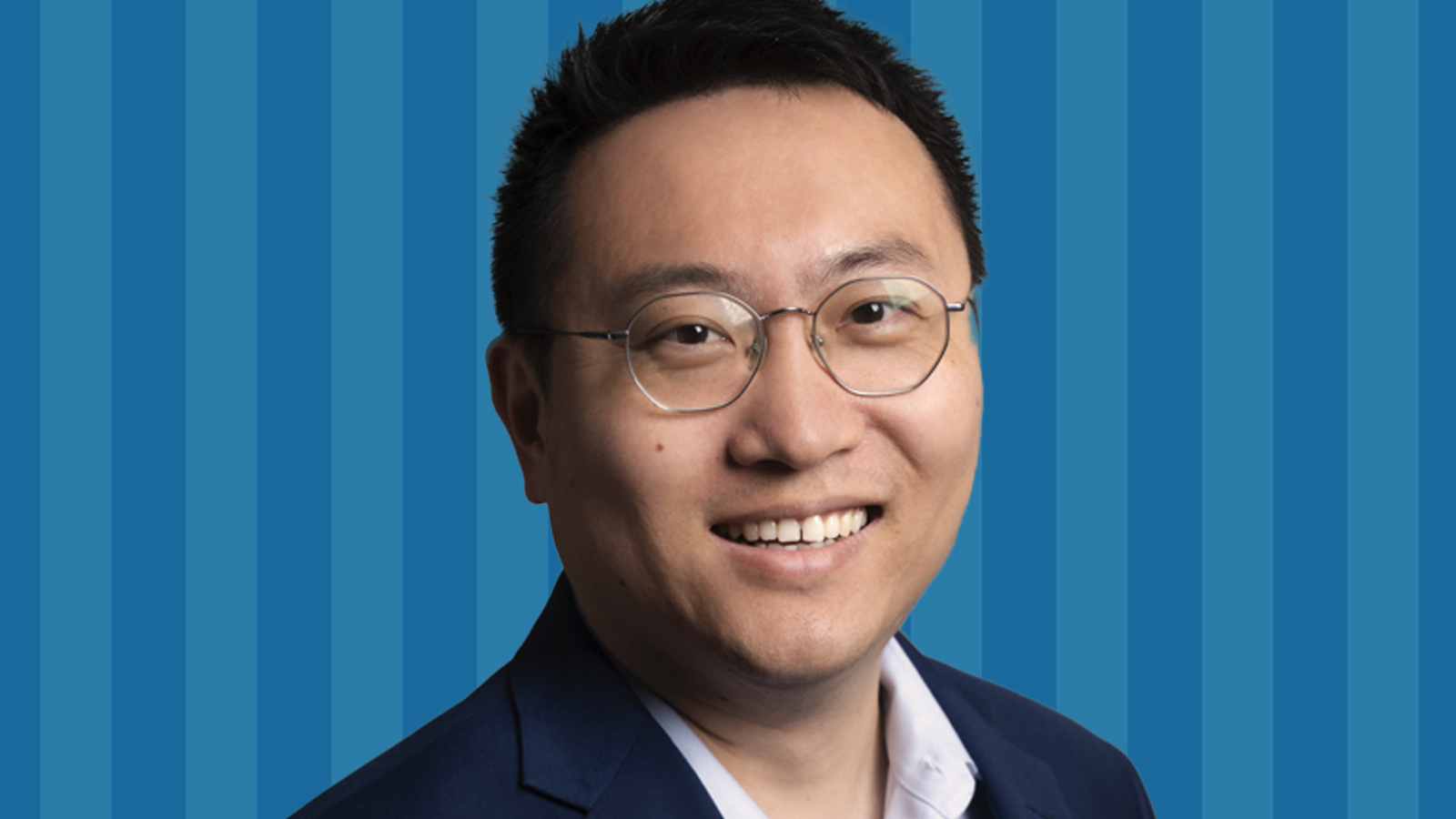Haozhe “Harry” Wang: Perfecting Nanoscale Materials Fabrication for Quantum Systems
New faculty member Haozhe “Harry” Wang develops both additive and subtractive manufacturing processes to enable the mass production of future quantum systems

Haozhe “Harry” Wang will join the faculty of the Department of Electrical and Computer Engineering in Duke University’s Pratt School of Engineering, beginning July 1, 2023. A pioneer in developing new methods for manufacturing materials with atomic-scale precision through both additive and subtractive processes, Wang aims to enable the future widespread use and mass production of quantum computers and quantum systems.
Duke Engineering is home to a leading, growing group of researchers pursuing quantum computers and applications through the Duke Quantum Center. While much of the group’s research has centered on trapped ion technology, where individual computing elements are created by controlling floating atoms with lasers, Wang’s work is more applicable to methods being pursued by the likes of Microsoft and Google. These systems harness the quantum characteristics of tiny loops of superconducting circuits, where electricity whips around with zero resistance.
The challenge to the latter approach is that even very small and very rare imperfections in the atomic structures of the superconducting circuits can cause errors. In current nanofabrication approaches, imperfections are nearly impossible to stamp out.
Wang’s research, then, seeks to make the nearly impossible commonplace.
“Google’s Sycamore quantum computer has 54 nodes, but one is not working. If we could fix the broken nodes during the manufacturing process, it would allow these systems to be scaled up into much larger and more powerful quantum computers.”
harry wang
“Non-trivial quantum effects have been observed in small flakes,” Wang said. “But to take this technology out of a research lab and into real applications, we need to figure out how to synthesize large-scale quantum materials with uniform quantum properties.”
In one avenue of Wang’s research, he’s developing additive tools to grow these quantum materials with high precision. He has demonstrated a chemical vapor deposition process to build uniform bilayer graphene in a layer-by-layer manner.
On the flip side of the same quantum coin, Wang is developing techniques that can etch quantum materials with atomic-scale perfection. Named atomic layer etching (ALE), this is a reversal process of atomic layer deposition, which removes sub-nanometer defects to create perfect surfaces and interfaces.
Wang’s dream, he says, is to combine these two pursuits into a self-correcting manufacturing system. Theoretically, it would be ideal to have a process where hundreds of nodes are grown together, and if one or two have imperfections (which they usually do at that scale), they can be identified and fixed by the etching technology.
“Google’s Sycamore quantum computer has 54 nodes, but one is not working,” Wang said. “If we could fix the broken nodes during the manufacturing process, it would allow these systems to be scaled up into much larger and more powerful quantum computers.”
“My research in synthesizing electronic materials will offer another angle to support current research at Duke. I feel like my work could be the missing puzzle piece that could help already fantastic research areas be even better.”
harry wang
Besides adding to Duke’s general expertise in quantum systems, Wang’s research will pair nicely with several ongoing projects within the school. Wang’s expertise on creating nanostructures fits well with Aaron Franklin’s projects to develop techniques to print complex, fully recyclable electronics. And Wang’s knowledge on two-dimensional materials growth will align well with Tania Roy’s efforts to engineer hardware for AI applications that mimic the basic structure of synapses and neurons.
“My research in synthesizing electronic materials will offer another angle to support current research at Duke,” Wang said. “I feel like my work could be the missing puzzle piece that could help already fantastic research areas be even better.”
Wang joins Duke from his position as the KNI Prize Postdoctoral Fellow at the California Institute of Technology. He earned his bachelor’s and master’s degrees in materials science and engineering through a joint program between Shanghai Jiao Tong University and Northwestern University. He then completed his PhD in electrical engineering and computer science from the Massachusetts Institute of Technology.
Even with an impressive academic pedigree, Wang believes he’s joining one of the leading programs in the field.
“Duke is a top university in the U.S. and well-known in the world as being currently one of the best places for this field of research,” Wang said. “Duke also offers tremendous resources and has really good facilities. I feel very supported in coming to the school, and I’m confident this move will help me become the best scholar I can be.”
